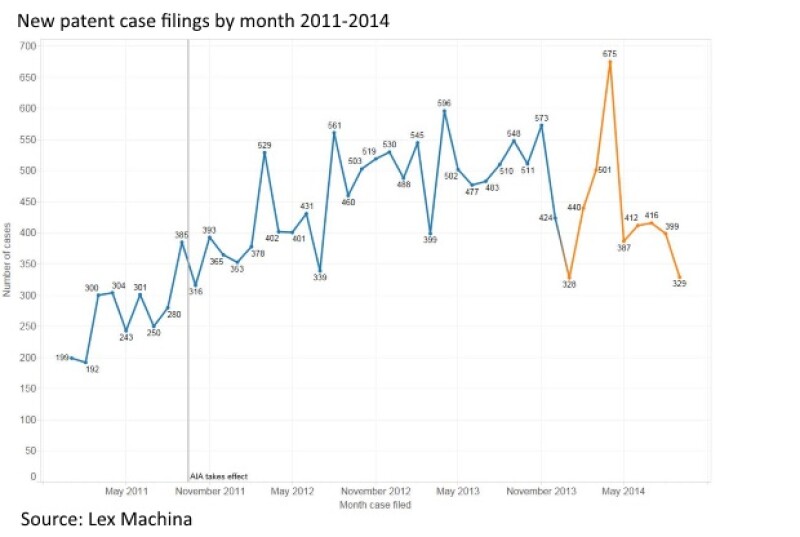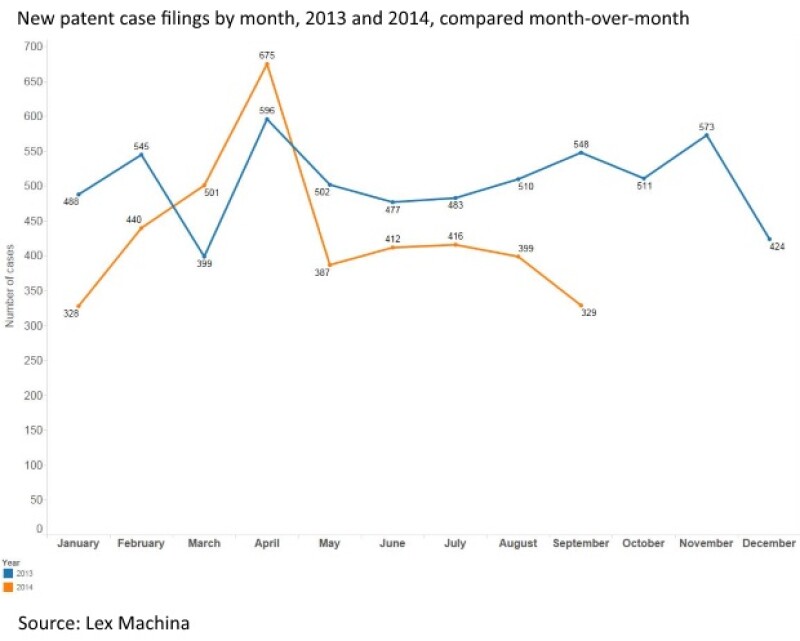
According to a Lex Machina blog post, plaintiffs filed 329 new federal patent cases in September 2014, down from 549 cases filed in the same month last year.
This does not seem a one-month anomaly. Filings over the past five months have dwindled after a reaching a record high in April 2014 (one week in April saw an unusually large number of filings – 199 – which appeared to be a result of non-practicing entities trying to pre-empt a proposed amendment to patent reform).
Since 2011, new filings have generally fallen during the summer and increased towards the end of the year. But Lex Machina reports that filings this year have not so far shown any signs of bouncing back upwards. Comparisons of corresponding months in 2013 and 2014 show lower monthly totals for 2014 since May.

The reason? The Supreme Court’s decision in Alice v CLS Bank on June 19 appears to be deterring filing. Mark Lemley, law professor at Stanford and patent litigator at Durie Tangri, is in no doubt this is the case. He believes more patentees are deciding not to file suit following the Alice decision.
Alice made clear that merely implementing an abstract idea on a computer is not patentable. Since then, courts have been busy invalidating software patents that fall foul of this, such as one for a bingo game on a computer.
“In the past two months, we’ve seen over a dozen decisions invalidating software and business method patents on the basis of Alice,” Lemley said in the Lex Machina blog post. “That’s a pretty strong deterrent to software plaintiffs whose patent isn’t directed to specific new computer technology.”
This explanation seems reasonable, although Alice may not be responsible for all of the fall in patent lawsuit filing. For example, Patent Trial and Appeal Board proceedings have become amazingly popular in the past year. The prospect of a having a patent challenged at the PTAB would make anyone holding a less-than-strong patent think twice about using it to suing for infringement.
Three months of the year remain. They should reveal much about whether Alice has caused a temporary pause while patent owners digest Alice and its ramifications or has brought about a more profound change in the filing of patent lawsuits in the US.
If the effect is long term, this could have other impacts. For instance, it could make it harder for those pushing reform in Congress to claim statistics show that patent lawsuits are going through the roof.









